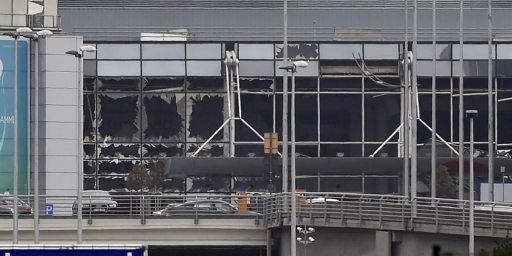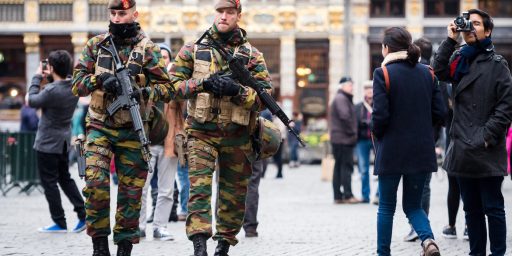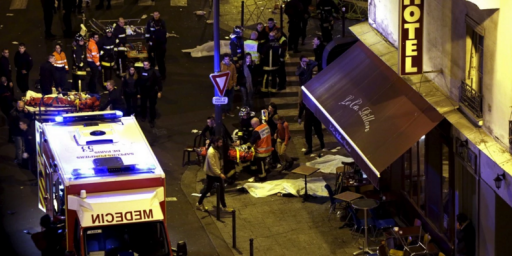Belgians About to Set Record for Failure to Form Government
Via the Independent of London: Belgium – eight months with no government
A week today, the Belgians will wrest from Iraqis the title of the country which has gone the longest after an election – 252 days – without agreeing on a new government.
The piece was published on the 13th of February, so the magic date is Sunday the 20th.
The article is an interesting combination of the whimsical and serious as it describes the problems of a small, highly federal system that contains both linguistic and class divisions to go along with the territorial ones.
Some examples of the the whimsical:
There was a "Shame on Politicians" march through Brussels last month by 35,000 people, equally divided between French-speakers and Dutch-speakers. There is a "no-shave-until-we-have-a-government" protest, led by the actor Benoît Poelvoorde, and a "no-sex-until-you-agree" protest by a group of female Belgian politicians.
More seriously, this is all about Belgian national identity, and perhaps even about whether Belgium remains a state (i.e., does not break into its constituent parts:
The problem (one of many problems) is that, after 40 years of tinkering with the constitution and moving responsibility for many everyday decisions to the three "regions" or two language "communities" (plus a small German minority), it has become difficult to say what the Belgian state should continue to do. Or even, some Flemings argue, whether it has any sensible role at all.
The two sets of politicians, who have been in linguistically separate parties since the 1970s, see little advantage in talking to each other any more. Their interests and, crucially, their careers have become regional, not national.
Belgium is divided by far more than language. The Dutch-speaking north, once rural and poor and looked down on by French speakers, has been economically booming for decades. It has become in effect, a vast mega-suburb which is right-leaning in its politics. The French-speaking south, once industrially powerful, has been depressed for decades but is beginning to recover. Its politics remain dominated by a largely unreconstructed Socialist party.
Imagine, therefore, a country of 10 million made up of the industrially depressed, old Labour-run parts of Durham and Yorkshire and the most booming parts of Tory-run Berkshire and Hampshire. And then add two different languages and 500 different kinds of beer.
One might well wonder how a land with 500 kinds of beer could have such problems (but I digress).
We also have our word for the day: “Belgitude”:
For Mr Desmet "Belgitude" – the state of being Belgian – is almost an existential quality. "Belgitude is precisely the absence of a strong, centralising national state and a lack of insistence on one cultural identity. It is a willingness to accept different cultures and traditions and allow them work together. It should therefore be able to embrace the new "multi-culturalism" of Brussels as well as the Flemish and Francophone traditions."




